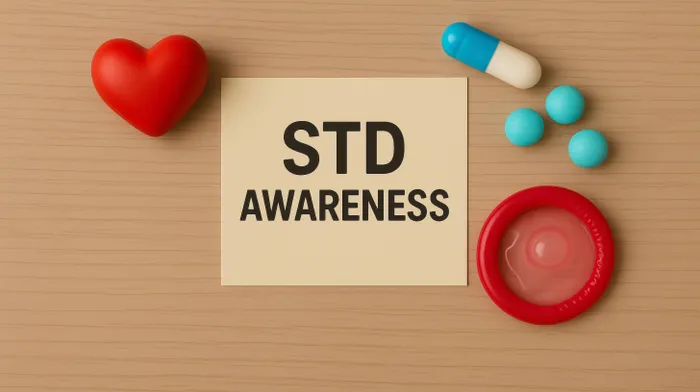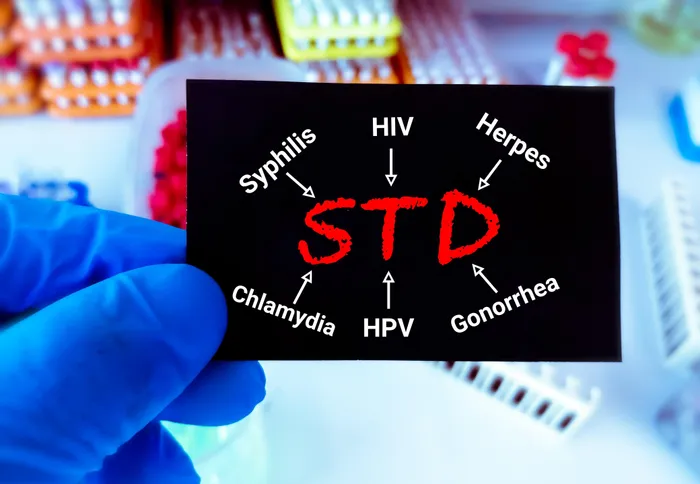
Normalising conversations around sexual health is essential for changing this narrative, positioning STI testing as a routine practice akin to regular exercise or dental care.
Image: Supplied
It doesn’t always come with a flashing red light. Sometimes, no rash, no discomfort, no discharge. In fact, for many people living with a sexually transmitted infection (STI), there are no symptoms at all, especially in the early stages.
That’s the tricky thing about sexual health: it often whispers when you expect it to shout.
According to the World Health Organization (WHO), over one million STIs are contracted every single day, most of them silently. In South Africa, STIs remain a significant public health concern, yet the conversation is shrouded in stigma, silence, and shame.
But here’s the truth: your sexual health deserves your attention, whether or not you have symptoms.
For Sexual Health Week, from September 9 to 15, BioSmart, a top clinical pathology lab in South Africa, is asking an important question: When was the last time you got tested?
You don’t need to be worried or feel that something is wrong. Knowing your status is simply a key part of sexual wellness.
The silent risks of STIs
“We’re conditioned to believe that if there’s no pain, there’s no problem,” explains Tyron Hansen, business development manager at BioSmart.
"But with STIs, silence isn’t safety. Many infections remain asymptomatic for years, quietly increasing risks like infertility, pregnancy complications, or even long-term health issues.
“This is why proactive testing isn’t just important, it’s essential."
But perhaps you’re thinking, “I feel fine, so why should I bother?”

In South Africa, over 50% of young adults will contract an STI by age 25, as reported by the South African National HIV Prevalence, Incidence and Behaviour Survey.
Image: Supplied
Hansen breaks down five essential reasons why STI testing should be a routine part of your self-care, whether or not you notice any symptoms:
You’ve had unprotected sex (even just once!): Sometimes, it’s a heat-of-the-moment decision. Other times, it’s a broken condom you didn’t notice until later. Either way, unprotected sex significantly increases your risk of contracting an STI.
And it’s not just HIV you need to think about, chlamydia, gonorrhoea, syphilis, and HPV are all widespread in South Africa, often flying under the radar.
You’ve started seeing someone new: STIs from previous partners can linger undetected. If you’re embarking on a new relationship, STI testing isn’t just about protecting yourself; it’s about building trust and showing care for your partner. It’s not judgment; it’s responsibility.
You’re considering stopping condoms or starting a family: Deciding to stop using condoms or planning for a baby is a major milestone. But it’s also a reason to pause and check in on your sexual health. #
Some STIs, like chlamydia, can impact fertility or harm a developing pregnancy. A sexual health screening ensures you’re taking this step with confidence, not assumptions.
You’ve noticed physical changes (even minor ones): Slight itching, unusual discharge, or discomfort during sex may seem minor, but these are all reasons to check in with a professional. Your body whispers before it screams. Don’t ignore it.
It’s been over a year since your last test: Routine testing isn’t just for the single crowd. Whether you’re in a long-term relationship or not, an annual STI screening is as routine as a pap smear or a cholesterol check.

STIs remain a significant public health concern, yet the conversation is shrouded in stigma, silence, and shame.
Image: RON
Breaking the stigma around testing
Sexual health isn’t about guilt, judgment, or blame. It’s about empowerment. In a country where over 50% of young adults will contract an STI before the age of 25, according to the South African National HIV Prevalence, Incidence and Behaviour Survey, testing regularly should be seen as essential, not optional.
STI testing isn’t about fear. It’s about freedom, freedom from uncertainty, freedom to plan your future with confidence, and freedom to enjoy intimacy without doubt.
“Shame is still louder than science,” Hansen notes. “In many South African households, talking about sex remains taboo. Conversations about STIs are often brushed aside because of cultural norms, gender roles, or fear of judgment. That silence makes it even harder for people to step forward and get tested.”
This stigma can create dangerous cycles: people avoid testing because they fear being judged, which allows infections to spread unnoticed.
By normalising conversations about sexual health, South Africans can change this narrative, turning testing into a routine part of wellness, no different from brushing teeth or going to the gym.
Making testing easier and stigma-free
As a result, they are on a mission to remove the awkwardness and barriers to STI testing. They’ve introduced discreet, at-home self-sampling kits that make the process private, simple, and empowering. Here’s how it works:
“We want to transform testing into an empowering act of self-care,” Hansen says.
“Knowing your status is about peace of mind, not fear. It’s about being proactive, protecting yourself, and protecting the people you care about. Being healthy is not just about assuming you’re fine, it’s about knowing you are.”